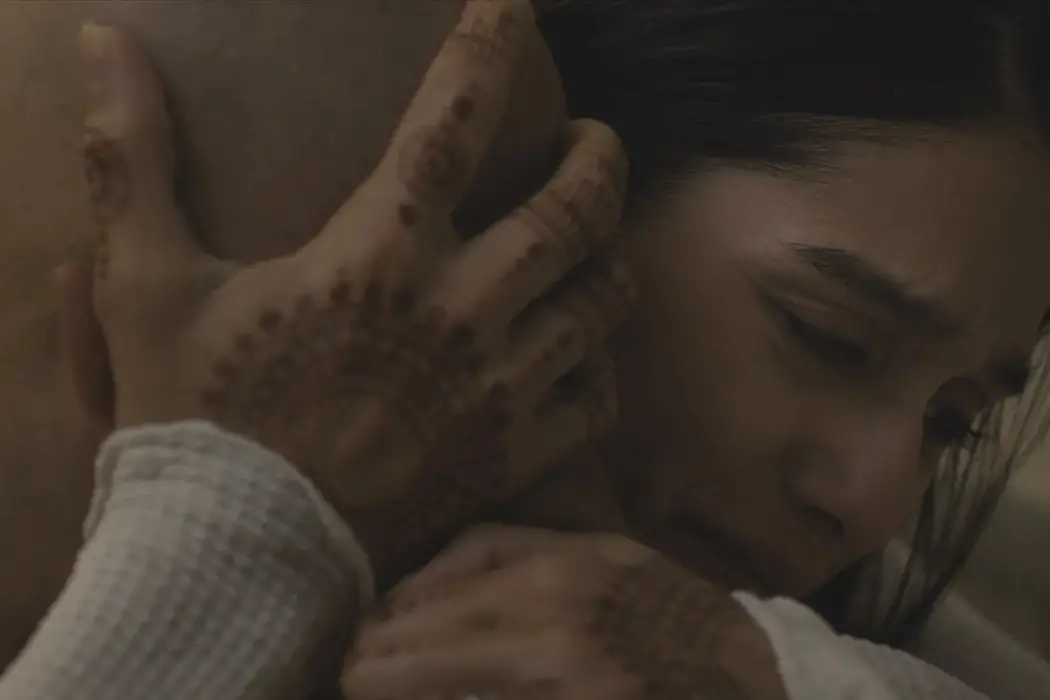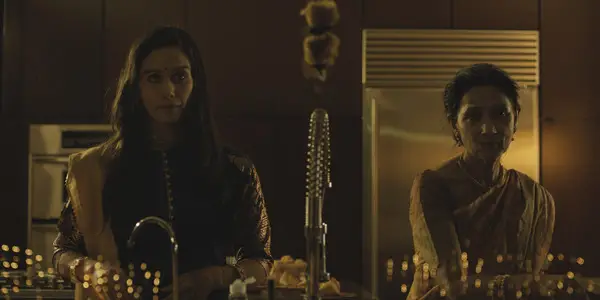Slamdance 2024: DOSH

Jules Caldeira is an Associate Editor for Film Inquiry based…
Something all nations and cultures have in common, besides math and needing to breathe, is family troubles in times of crisis. No matter the media or the language, all audiences can relate to struggles with mental health and battling the stigmas that might come with that. Screening at Slamdance, the short film DOSH focuses on such struggles through the lens of a specific culture and mental health taboos within.
An Emotional Exploration of a Taboo
Despite more widespread awareness, the stigmas surrounding mental health continue to pervade the public eye. In some cultures, even broaching the topic is more taboo than in others, which can be detrimental to one’s mental health and that of their family’s. Radha Mehta explores such a dynamic with her short film DOSH, which means “fault” in Hindi. Karishma (Renu Razdan), a mother who is hard of hearing, struggles with her husband Ram’s (Nikhil Prakash) behavior as they try to parent their son Rishi (Tyler Anton). Later, as they prepare for a pre-wedding ritual along with their family, Karishma turns to Ram’s mother (Mona Shishodia) for help, but she passes off Karishma’s concerns about Ram being bipolar as “a Western construct.” Tensions come to a head as Rishi is put in danger, and Karishma must decide what’s best for her family.

Director and co-writer Mehta, along with Noorah Al-Eidi, brings together a powerful story that hits home for those familiar with struggles, and perhaps even those who aren’t. Such insight into a culture, focusing on a topic many within are hesitant to even acknowledge, brings a hard truth to light and will hopefully pave the way for others to be open about their own mental health journeys. Razdan gives an earnest, nuanced performance as Karishma, and gets a brief moment in the spotlight (literally) in a scene where her hearing aids are losing battery. She turns them off, and in shutting out the world, for a moment she’s free, even dancing to emphasize her freedom. My only gripe with this short is just that: it’s short. Hopefully this AFI Conservatory thesis film will one day be expanded into a feature so we can see the full scope of Karishma and her family’s journey.
Check out more of Film Inquiry’s Slamdance 2024 coverage HERE.
Does content like this matter to you?
Become a Member and support film journalism. Unlock access to all of Film Inquiry`s great articles. Join a community of like-minded readers who are passionate about cinema - get access to our private members Network, give back to independent filmmakers, and more.
Jules Caldeira is an Associate Editor for Film Inquiry based in Sacramento, CA. He's a drummer, part-time screenwriter, and full-time Disney history nerd who can be found on social media when he remembers to post, and can be contacted at [email protected].













